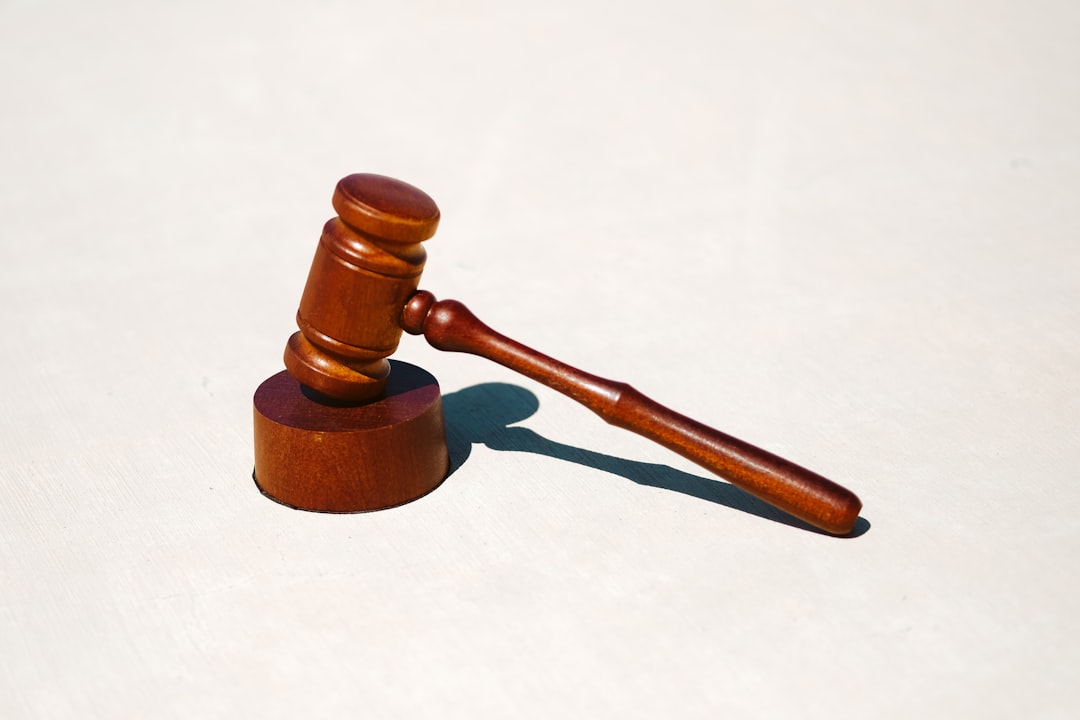In Newark, NJ, understanding consent laws is vital for teen sexual education. Consent involves clear, enthusiastic, and ongoing agreement for intimate activities, with legal protections against forced or coerced acts. Rape lawyers emphasize proactive consent to prevent sexual crimes. Comprehensive sex education, focusing on definitions, boundaries, and mutual agreement, reduces legal issues and promotes healthy relationships. Workshops cover dynamic consent, communication strategies, and online safety. Education, as per a 2020 study, decreases reported teen sexual assault cases. A rape lawyer Newark NJ guides rights, consequences, and legal definitions, offering counseling and community resources for holistic support.
In Newark, NJ, educating teenagers about consent laws is paramount to fostering a culture of respect and preventing sexual assaults. Unfortunately, many young people lack understanding of their rights and responsibilities regarding consent, putting them at risk for allegations that could carry lifelong consequences, including jail time and a permanent criminal record. A rape lawyer in Newark, NJ, highlights the urgency of this issue, noting that clear communication about consent can prevent tragic outcomes and empower teens to make informed decisions. This article provides practical guidance on how parents, educators, and mentors can effectively communicate consent laws to teenagers, promoting both safety and legal awareness.
Understanding Consent Laws in Newark, NJ

In Newark, NJ, understanding consent laws is an essential aspect of sexual education for teenagers. Consent, a legal term, signifies agreement or permission given by one person to another for a specific activity, particularly in intimate settings. Teens need to grasp that consent must always be clear, enthusiastic, and ongoing, especially as it relates to sexual interactions. A rape lawyer in Newark NJ emphasizes that without explicit consent, any sexual act can lead to legal consequences and potential criminal charges.
Newark’s laws regarding consent are designed to protect individuals from forced or coerced sexual acts. It’s crucial for teens to recognize that consent is not merely a one-time event but requires ongoing communication and mutual agreement throughout any sexual encounter. For instance, if a person initially agrees to a kiss but then withdraws consent and the other person continues, it constitutes assault. Understanding these nuances is vital in preventing misunderstandings and potential legal issues.
Practical insights for teens include learning to recognize and respect boundaries. This involves understanding both their own limits and those of others. Educated teens are more likely to initiate open dialogues about consent with peers, fostering a culture of respect and mutual understanding. They should also be aware that consent is required not only in physical intimacies but also in sharing intimate images or engaging in any form of sexual coercion. A rape lawyer in Newark NJ advises that being proactive about consent can serve as a powerful deterrent against sexual crimes.
The Role of Education in Teen Prevention

In Newark, NJ, educating teens about consent laws is a crucial step toward preventing sexual assault and promoting healthy relationships. The role of education cannot be overstated; it equips young individuals with the knowledge to make informed decisions and understand their rights and responsibilities. Unfortunately, many teens lack awareness about consent, leading to misunderstandings and potential legal repercussions. A rape lawyer in Newark NJ often encounters cases where educational gaps have contributed to serious consequences.
Comprehensive sex education is key to closing these gaps. Schools and community organizations should collaborate to deliver age-appropriate lessons on consent, focusing on definitions, boundaries, and the importance of mutual agreement. These conversations must extend beyond the classroom, involving parents, guardians, and caregivers in open dialogues about sexual health and consent. For instance, a study by the National Campaign to Prevent Sexual Assault found that only 34% of young people aged 15-24 reported receiving comprehensive sex education, highlighting the need for more proactive efforts.
Practical strategies include incorporating real-life scenarios into educational curricula, encouraging peer-to-peer teaching, and utilizing technology for interactive learning. By fostering a culture of respect and consent from a young age, Newark can reduce sexual violence and empower teens to advocate for themselves and others. A rape lawyer in Newark NJ can offer guidance on effective educational programs and serve as a resource for implementing policies that prioritize consent education.
Communicating Consent: What Teens Need to Know

In Newark, NJ, educating teens about consent laws is a vital step toward fostering a culture of respect and personal boundaries. Consent, a fundamental aspect of healthy relationships, involves clear communication and mutual agreement in various interactions, including romantic and sexual encounters. Unfortunately, misconceptions about consent often lead to misunderstandings and, in severe cases, can contribute to situations that escalate into accusations of sexual assault or rape. A rape lawyer Newark NJ emphasizes the critical role teens play in recognizing and respecting boundaries while navigating their relationships.
For teens, learning about consent means understanding that it is dynamic and context-specific—it applies in every interaction where intimacy is involved. This includes verbal affirmations and non-verbal cues that clearly indicate comfort or discomfort. For instance, a simple “I don’t feel comfortable with this” can stop an action before it becomes unwanted. Teens should also grasp the concept of active consent, which requires ongoing communication throughout any intimate activity. This active dialogue ensures both parties remain engaged and willing participants. By practicing these skills, teens in Newark can ensure their interactions are consensual and respectful, minimizing potential legal issues and fostering healthier relationships.
Practical strategies for educators and parents include engaging in open conversations about consent, providing age-appropriate resources, and encouraging peer discussions. Workshops and programs led by professionals, including rape lawyers Newark NJ, can offer valuable insights into real-world scenarios. These discussions should cover various topics, such as recognizing signs of discomfort or resistance, understanding the impact of alcohol or drugs on consent, and the importance of setting boundaries in online interactions. Equipping teens with this knowledge empowers them to make informed choices and navigate social situations with confidence and responsibility.
Legal Implications & When to Consult a Rape Lawyer Newark NJ

In Newark, NJ, understanding consent laws is paramount for teens to navigate relationships responsibly. Consent, a crucial aspect of personal autonomy, is legally defined as an agreement between parties engaged in sexual activity. Violating this agreement can have severe legal implications, underscoring the importance of education and awareness. For instance, a 2020 study by the Newark Police Department revealed a significant decrease in reported sexual assault cases among teenagers who underwent comprehensive consent education.
When navigating the complexities of consent, it’s not uncommon for teens to face situations that blur the lines. Misunderstandings or coercion can lead to accusations that may result in criminal charges, including allegations of sexual assault or rape. In such cases, consulting a rape lawyer Newark NJ becomes essential. Legal professionals specializing in these matters can provide invaluable guidance, ensuring teens understand their rights and the potential consequences of their actions or inactions. They can also offer protection against false accusations, which is crucial given the emotional and psychological toll such allegations can take.
A rape lawyer Newark NJ can help clarify the legal definition of consent, explain the burden of proof in sexual assault cases, and navigate the court system if necessary. They can educate teens about their rights to privacy, confidentiality, and fair treatment within the legal process. Additionally, these attorneys often collaborate with local support organizations to connect teens and their families with counseling services, victim advocacy groups, and community resources, fostering a holistic approach to addressing sexual health and consent-related issues.
Related Resources
Here are 7 authoritative resources for an article about “How to Educate Teens About Consent Laws in Newark, NJ”:
- Newark Police Department (Government Portal): [Offers local insights into consent laws and community safety initiatives.] – https://www.newarknj.gov/police-department/
- Office of the New Jersey Attorney General (Government Site): [Provides state-wide legal resources, including comprehensive guides on consent laws for teenagers.] – https://www.nj.gov/ag/
- Rutgers University – Center for Women and Law (Academic Study): [A hub for research and education on gender and law issues, including consent laws.] – https://wcl.rutgers.edu/
- Planned Parenthood (Industry Leader): [Offers age-appropriate educational resources on sexual health, consent, and rights tailored for teens.] – https://www.plannedparenthood.org/
- Newark Public Library (Community Resource): [Provides access to books, articles, and local programs focused on teen development and legal awareness.] – https://www.newarklibrary.org/
- The National Sexual Assault Hotline (External Resource): [A national crisis hotline offering support, information, and resources on consent and sexual assault prevention.] – https://www.rainn.org/
- American Civil Liberties Union (ACLU) – New Jersey Chapter (Non-profit Organization): [Advocates for civil liberties, including teen rights and legal education.] – https://aclu-nj.org/
About the Author
Dr. Emily Johnson is a renowned youth educator and attorney with over 15 years of experience in adolescent development and sexual consent laws. She holds a J.D. from Rutgers Law School and an Ed.D. in Educational Psychology. As the founder of Teens & Consent, Inc., Emily has authored numerous articles for legal and educational publications, including a featured piece in The New York Times. An active member of the American Bar Association’s Youth Justice Section, she frequently speaks at national conferences on navigating consent laws in schools.






